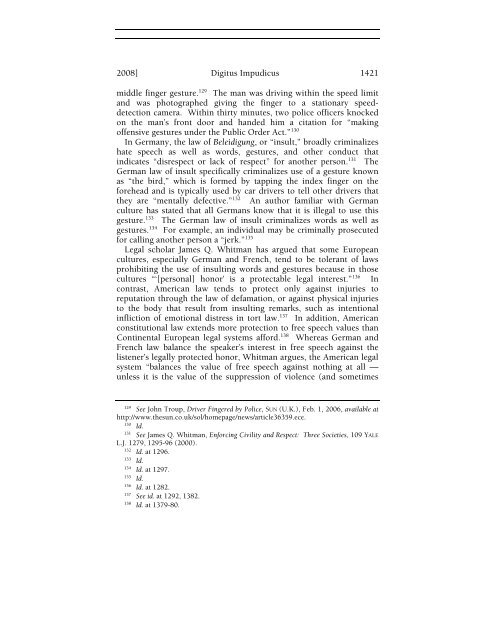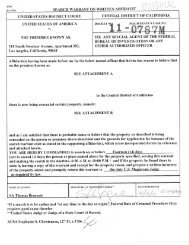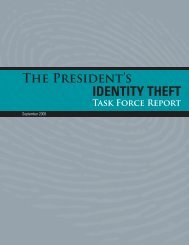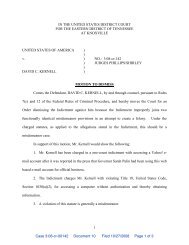Digitus Impudicus: The Middle Finger and the Law - Wired
Digitus Impudicus: The Middle Finger and the Law - Wired
Digitus Impudicus: The Middle Finger and the Law - Wired
Create successful ePaper yourself
Turn your PDF publications into a flip-book with our unique Google optimized e-Paper software.
2008] <strong>Digitus</strong> <strong>Impudicus</strong> 1421<br />
middle finger gesture. 129 <strong>The</strong> man was driving within <strong>the</strong> speed limit<br />
<strong>and</strong> was photographed giving <strong>the</strong> finger to a stationary speeddetection<br />
camera. Within thirty minutes, two police officers knocked<br />
on <strong>the</strong> man’s front door <strong>and</strong> h<strong>and</strong>ed him a citation for “making<br />
offensive gestures under <strong>the</strong> Public Order Act.” 130<br />
In Germany, <strong>the</strong> law of Beleidigung, or “insult,” broadly criminalizes<br />
hate speech as well as words, gestures, <strong>and</strong> o<strong>the</strong>r conduct that<br />
indicates “disrespect or lack of respect” for ano<strong>the</strong>r person. 131 <strong>The</strong><br />
German law of insult specifically criminalizes use of a gesture known<br />
as “<strong>the</strong> bird,” which is formed by tapping <strong>the</strong> index finger on <strong>the</strong><br />
forehead <strong>and</strong> is typically used by car drivers to tell o<strong>the</strong>r drivers that<br />
<strong>the</strong>y are “mentally defective.” 132 An author familiar with German<br />
culture has stated that all Germans know that it is illegal to use this<br />
gesture. 133 <strong>The</strong> German law of insult criminalizes words as well as<br />
gestures. 134 For example, an individual may be criminally prosecuted<br />
for calling ano<strong>the</strong>r person a “jerk.” 135<br />
Legal scholar James Q. Whitman has argued that some European<br />
cultures, especially German <strong>and</strong> French, tend to be tolerant of laws<br />
prohibiting <strong>the</strong> use of insulting words <strong>and</strong> gestures because in those<br />
cultures “‘[personal] honor’ is a protectable legal interest.” 136 In<br />
contrast, American law tends to protect only against injuries to<br />
reputation through <strong>the</strong> law of defamation, or against physical injuries<br />
to <strong>the</strong> body that result from insulting remarks, such as intentional<br />
infliction of emotional distress in tort law. 137 In addition, American<br />
constitutional law extends more protection to free speech values than<br />
Continental European legal systems afford. 138 Whereas German <strong>and</strong><br />
French law balance <strong>the</strong> speaker’s interest in free speech against <strong>the</strong><br />
listener’s legally protected honor, Whitman argues, <strong>the</strong> American legal<br />
system “balances <strong>the</strong> value of free speech against nothing at all —<br />
unless it is <strong>the</strong> value of <strong>the</strong> suppression of violence (<strong>and</strong> sometimes<br />
129 See John Troup, Driver <strong>Finger</strong>ed by Police, SUN (U.K.), Feb. 1, 2006, available at<br />
http://www.<strong>the</strong>sun.co.uk/sol/homepage/news/article36359.ece.<br />
130 Id.<br />
131 See James Q. Whitman, Enforcing Civility <strong>and</strong> Respect: Three Societies, 109 YALE<br />
L.J. 1279, 1295-96 (2000).<br />
132 Id. at 1296.<br />
133 Id.<br />
134 Id. at 1297.<br />
135 Id.<br />
136 Id. at 1282.<br />
137 See id. at 1292, 1382.<br />
138 Id. at 1379-80.

















